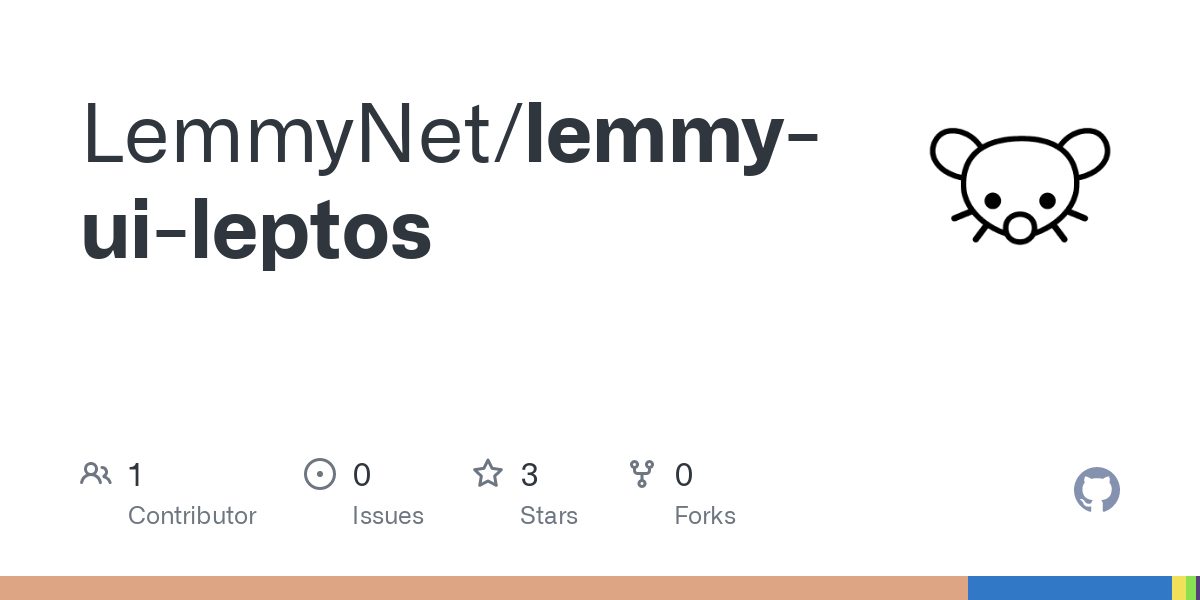- cross-posted to:
- france@lemmy.world
- cross-posted to:
- france@lemmy.world
Quoting the author
I’ve starting working on a lemmy front end called lemmy-ui-leptos using leptos, a Rust UI framework with isomorphic support, and tailwind + daisyUI for the component styling. This could eventually replace the frankenstein’s monster that lemmy-ui has become.



In your analogy, where does Fast.ly fit in by being the only entity capable of handling mastodon.social traffic?
In your analogy, what do you make of mastodon.world and lemmy.world, which is a private company offering the service for “free”?
In your analogy, what do you make of the numerous cases of instances shutting down because the admin could not keep with the growth, or got run over by freeloaders who pissed on the well?
If “the fediverse in general is the literal manifest of the means of production owned by the producers”, does this mean that its “economic output” will always be inferior to other economic systems that are driven by profit motive? IOW, does this mean that the Fediverse is always going to be a small thing who will never be able to replace Big Tech?
So in reverse order:
The fediverse to me will always be an expanding niche, I don’t think the network effect social growth works without cash. If your looking to measure by quality of dialogue instead of growth I think this presents the best option. There’s plenty of economic benefit beyond ad sales from good discourse.
Instead you’re looking a million AOL install disk moments until ubiquity, if it doesn’t fall apart first.
Instances shutting down is actually markedly like the way famine, war or anything else beyond my control as your average user would have pushed us to other reps. You can pick up and move, but how much of your stuff? Open question. Long term it should be feasible for your own instance to fire up, fetch messages and close again, so in theory you could keep all of it.
Now hardest: scale and cost, which I’d really contend are the same problem. If you look at how such systems are introduced you find advocates for vanguard, reps, workers tribunals and nothing quite ever sticks without some lingering problems. And the reality is the web of our modern universe isn’t going to independently operate with anything.
I don’t think anything but a charitable model gets it off the ground, the same way I don’t think the Internet is a thing without the crazy good folks running BBS boards. But it should be institutional as broadly as possible if you want long term success and trust in platform.
I think perhaps you may be confusing nobody to assert ownership of the bits, with the supposition that there is no cost on delivery.
The absolute opposite, actually. There is a cost to content distribution and for the maintenance of the service beyond the servers. Moderation, system administration, bug fixing, security research, optimizations in storage…
Putting up a server is the easy part. Ensuring that it can serve its users well, not so much. To do it properly, it becomes a part-time job. Now that there is an element of novelty to it, we will see many people sticking around to this work, but as the novelty wears off, they will either treat it like work or stop doing it altogether. We can see that happening already with Mastodon.
The reality is you already know there are people to do much of that job. A local ran a BBS for a town of 15k where I lived growing up. The moderators at Reddit were never paid, but they did it.
Point taken they whether they will do it here, but I think the descent from ubiquity to hobbyism again might do social media some good.
I’ve been through the collapse of the last vestiges of both Usenet and independent message boards, so I’m familiar with the perils of funding, and the deceptive costs of free. But wikipedia lives, hell even headfi still lives, there is a place within any market to be carried by it’s enthusiastic.